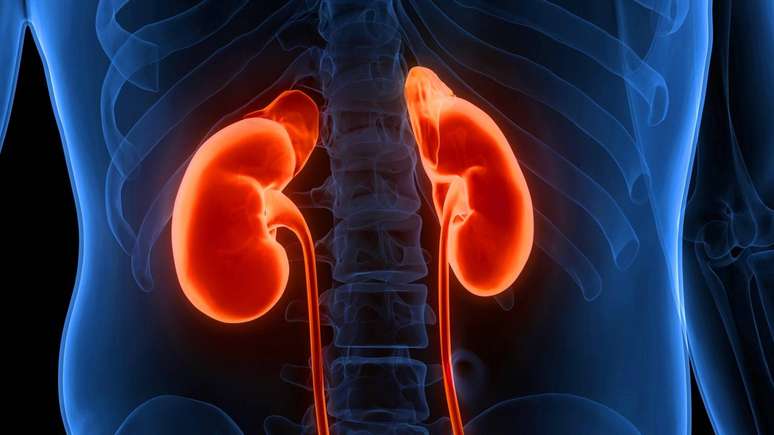-
Milk has been an essential part of the human diet throughout history, providing a rich source of nutrients vital for growth and health. On Nutritionist Day (31 August), it is important to reflect on the role that professionals play in providing guidance on healthy food choices, including milk and milk alternatives.
Photo: Disclosure / Flip
-
The growing diversity of alternatives such as coconut milk and nut milks, along with debates about the need for milk in adult diets, highlights the complexity and evolution of milk consumption.
Photo: Image by NoName_13 from Pixabay / Flipar
-
Milk is a rich source of many essential nutrients, including calcium, vitamin D, high-quality protein, and other micronutrients. These components are essential for the development and maintenance of healthy bones, muscle function, and overall health.
Photo: Image by Дарья Яковлева from Pixabay / Flipar
-
Milk proteins contain all the essential amino acids, making them an excellent source of complete protein. Additionally, the calcium and vitamin D found in milk are essential for building and maintaining strong bones and healthy teeth.
Photo: Image by Ruslan Sikunov from Pixabay / Flipar
-
Cheesemaking is one of the most traditional and versatile ways to use milk. Cheese is made by coagulating milk proteins, which are separated from the whey through the action of enzymes or acids.
Photo: freepik Racool_studio / Flipar
-
The diversity of cheeses produced around the world is impressive and reflects a wide range of textures, flavors and aromas. Cheese not only adds variety to the diet, but is also an excellent source of concentrated protein and calcium.
Photo: Alex S Araujo wikimedia commons / Flipar
-
Furthermore, cheese production has a significant economic impact, contributing to local agriculture and the economy in many regions.
Photo: Twitter / Flipar reproduction
-
In recent years, there has been a growing debate about the need for milk in the adult diet. Some studies suggest that while milk is beneficial for children, its importance for adults may be less than previously thought.
Photo: Pixabay/Flipar
-
Many adults are lactose intolerant, a condition that can cause gastrointestinal distress when milk is consumed.
Photo: Pixabay/Flipar
-
Furthermore, research has shown that excessive milk consumption does not necessarily improve bone health and may even be associated with certain risks, such as cardiovascular disease.
Photo: advertising / Flip
-
However, milk remains an important source of nutrients for many adults, especially those who cannot get enough calcium and vitamin D from other food sources.
Photo: reproduction/Internet copied from the site agroolhar.com.br / Flipar
-
The general recommendation is that for those who consume milk, moderation and choosing low-fat products can help balance the nutritional benefits with the potential risks.
Photo: Shefa Official Youtube Channel / Flipar
-
With growing health and environmental concerns, as well as increasing dietary diversity, alternatives to animal milk have become increasingly popular.
Photo: Free image by congerdesign from Pixabay / Flipar
-
Coconut milk and chestnut milk are two such options that have attracted attention for their nutritional properties and versatility.
Photo: Youtube/ Healthy Lifestyle / Flipar
-
Coconut milk is a popular alternative to cow’s milk, especially in vegan diets and for those who are lactose intolerant. Made from the meat of coconuts, coconut milk is rich in healthy fats, especially medium-chain triglycerides, which may have health benefits such as improving metabolism and providing energy.
Photo: jcomp freepik / Flip
-
Although coconut milk is not as significant a source of calcium as cow’s milk, it offers a tasty and nutritious alternative often used in Asian and tropical cuisine. However, due to its high fat content, consumption should be moderate to maintain a balanced diet.
Photo: Flickr Azul Aizenberg / Flipar
-
Nut milk is another growing alternative, especially popular among those who want to reduce their consumption of animal products. Made from chestnuts, this milk is a good source of minerals, such as magnesium and iron, and has a smooth, sweet flavor.
Photo: Disclosure / Flip
-
The milk and dairy products market plays a significant role in the global economy. Dairy and dairy production not only supports millions of jobs in agriculture and the food industry, but also has a significant economic impact in many regions.
Photo: Eiliv-Sonas Aceron/Unsplash / Flipar
-
Demand for milk and dairy products continues to be high, driven by their nutritional value and culinary versatility. Milk, in its many forms and variations, continues to play an important role in the human diet and the global economy.
Photo: TV playback/flip
-
While controversy persists over whether adults need milk, the importance of milk as a source of nutrients and its economic contribution are undeniable. As the market evolves, the diversity of options offers opportunities for the needs and preferences of an ever-changing global population.
Photo: Leite Ninho – Brands Become Names – Disclosure / Flip
To share
Source: Terra
Ben Stock is a lifestyle journalist and author at Gossipify. He writes about topics such as health, wellness, travel, food and home decor. He provides practical advice and inspiration to improve well-being, keeps readers up to date with latest lifestyle news and trends, known for his engaging writing style, in-depth analysis and unique perspectives.







